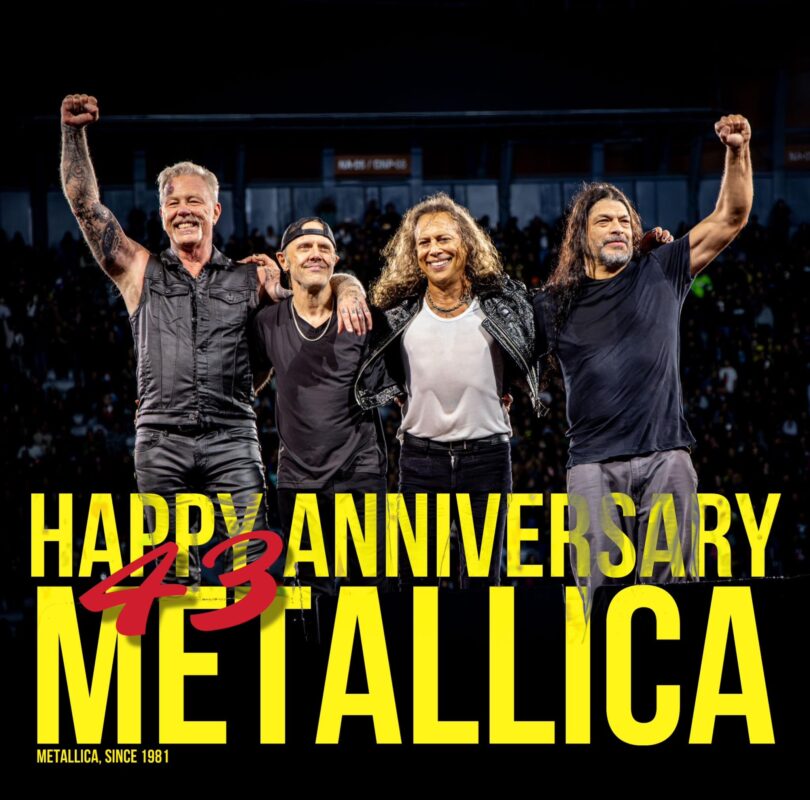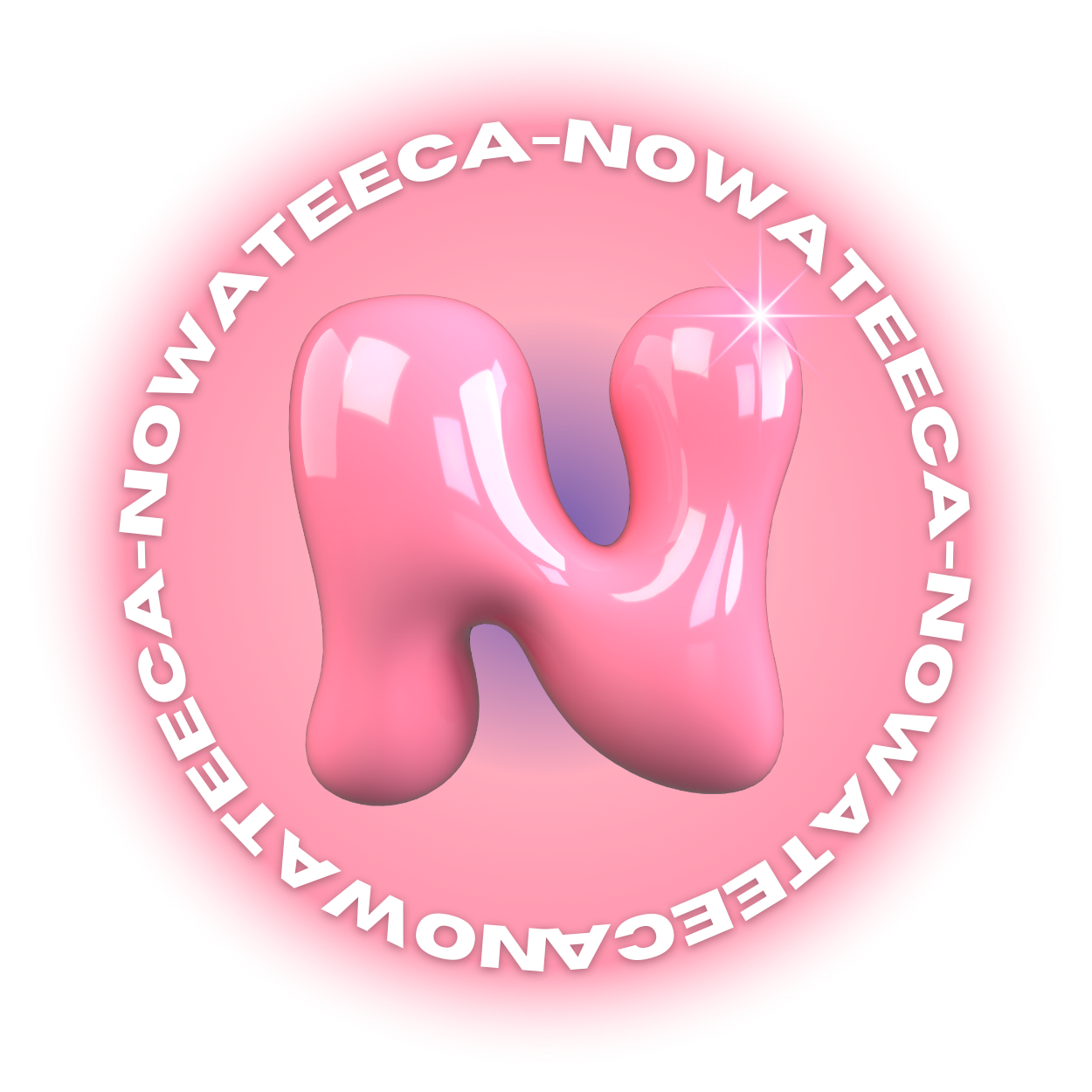News
Happy Anniversary 43 Metallica

Metallica is a renowned American thrash metal/heavy metal band, founded on October 28, 1981, by James Hetfield and Lars Ulrich.
With over 100 million albums sold worldwide, including 57 million in the United States alone, Metallica has become the most commercially successful heavy metal band in history. The band has won numerous prestigious music awards, including 9 Grammy Awards. Metallica is also the first artist to win both the Best Metal Performance and Hard Rock Performance categories at the Grammys. Recognized as one of the “Big Four” of thrash metal alongside Megadeth, Slayer, and Anthrax, Metallica played a key role in popularizing the genre.
Due to their outstanding achievements, Metallica was ranked 5th in VH1’s list of the “100 Greatest Artists of Hard Rock” and took the top spot on VH1’s “20 Greatest Metal Bands” list. Kerrang ranked them as the best rock band of the period from 1981 to 2000. In 2003, Rolling Stone placed Metallica at number 61 in its “100 Greatest Artists of All Time” list. On April 4, 2009, Metallica was officially inducted into the Rock and Roll Hall of Fame.
Band History
Metallica was established in Los Angeles, California, in October 1981, when guitarist and vocalist James Hetfield and drummer Lars Ulrich connected through classified ads in The Recycler seeking to start a band. The duo later brought in bassist Ron McGovney, and during this early period, the group experimented with several lead guitarists, including Lloyd Grant, Brad Parker, and Jeff Warner.
The band name “Metallica” was originally one of the suggestions for a new magazine promoting metal bands from Britain and the U.S., created by San Francisco metal promoter Ron Quintana. While Ulrich recommended the magazine be called “Metal Mania,” he decided to reserve “Metallica” for the band.
Drawing initial inspiration from British heavy metal acts like Black Sabbath, Motörhead, Diamond Head, Saxon, Judas Priest, and various punk bands including the Misfits, Zeroption, Discharge, and The Ramones, Metallica crafted its unique style. In early 1982, Ulrich convinced Brian Slagel from Metal Blade Records to include the track “Hit the Lights” on the first Metal Massacre compilation. Ulrich then advertised locally for a permanent guitarist, which led to Dave Mustaine, then of the band Panic, joining Metallica due to his impressive skill.
In March and April of 1982, with Mustaine on board, they recorded demos including Hit the Lights, Ron’s Garage, and Power Metal. A few months later, they produced the full-length demo No Life ‘Til Leather, which gained significant bootleg traction, followed by another live demo, Metal Up Your Ass. That year, McGovney left the band after an altercation with Mustaine. Metallica recruited Cliff Burton from the band Trauma, agreeing to relocate to San Francisco as a condition of Burton joining. With Burton, they recorded the Megaforce demo.
Metallica soon gained recognition in the Bay Area thrash scene, and in 1983, they went to New York to meet promoters Jon and Marsha Zazula. After signing with the Zazulas’ Megaforce Records, Ulrich and Hetfield decided to replace Mustaine due to his behavior, bringing in Kirk Hammett from Exodus. Mustaine went on to form Megadeth.
In spring 1983, the band recorded their debut album, Kill ‘Em All, in Rochester, New York. While not an initial commercial success, it established Metallica in the metal underground. A year later, the band released Ride the Lightning, featuring the slower, introspective track “Fade to Black,” which distinguished Metallica from other thrash bands and garnered both acclaim and controversy.
Great success
Once Ride The Lightning caught the attention of major record labels, Metallica signed with Elektra Records. Their first release with Elektra was Master of Puppets in 1986, the album marked a breakthrough for the band. Although no singles were released from the album, snippets of the tracks “Master of Puppets” and “Welcome Home (Sanitarium)” were aired. The band gained further recognition when they were asked to open for Ozzy Osbourne, and Master of Puppets peaked at number 29 on the Billboard Top Album Charts. To this day, some critics still consider the album to be one of the greatest metal albums of all time.
On September 27, 1986, while on tour in Europe, Cliff Burton was killed near Ljungby, Sweden, when the band’s bus skidded off a slippery road and overturned. Burton was thrown from the bus and crushed under it. At this point, it was not certain whether Burton was dead. A crane was brought in to lift the bus, but the bus slid back down and crushed Burton again.
Burton’s death left the band’s future in doubt. But the three remaining members decided that the bassist wanted them to continue. James Hetfield later said: “Knowing Cliff’s attitude, he’d kick our butts if we quit.” Almost immediately, the band began looking for a replacement bassist and began auditioning. Among them was Les Claypool (of future Primus), a childhood friend of Hammett’s. The band liked Claypool but felt he was too “funk”. In the Behind the Music video, Hetfield explained that Claypool was “too good” and “out of his element” for Metallica. Of course, Claypool was not chosen, and Jason Newsted, founder of Arizona band Flotsam and Jetsam, was hired. Newsted officially joined Metallica on October 28, 1986, three weeks after Burton’s funeral. With Newsted, the band completed a tour in the early months of 1987. Following this tour, the band quickly began recording The $5.98 EP: Garage Days Re-Revisited in July 1987 to test out their newly built studio, and to test Newsted’s talent.
…And Justice for All, Burton’s first post-death album, was released in 1988. Newsted’s bass is rarely heard on the album, and some fans have suggested that this was a deliberate response to Burton’s death, or a way to suppress Newsted. The most likely reason, as Hetfield and Ulrich have said in interviews, is that Newsted was not present during the mixing, and therefore had no influence on the final mix. Ulrich has also suggested that the lack of bass is due to Newsted playing entirely to Hetfield’s accordion.
Metallica (1990-1993)
Following the success of …And Justice For All, Metallica released their fifth studio album, Metallica, on August 12, 1991. Often referred to as “The Black Album,” it became the band’s defining work, featuring timeless tracks like “Enter Sandman,” “The Unforgiven,” “Nothing Else Matters,” and “Wherever I May Roam.” This album marked Metallica’s first time topping the Billboard 200 chart and has since become one of the best-selling albums of the century, with over 22 million copies sold globally and 15 million in the U.S. alone, earning 14 platinum certifications. Metallica solidified the band’s exceptional status in the metal genre and was a testament to their resilience and growth after the tragic loss of bassist Cliff Burton.
Load, Reload (1994-1999)
After the great success of the super product Metallica, Metallica continued to release two more studio albums, Load on June 4, 1996 and Reload on November 18, 1997. Although both albums still ranked number 1 on the Billboard 200 after release, it also marked the decline of Metallica when the above two albums were not highly appreciated by experts. CD sales also dropped significantly when in the US, Load only sold 5,020,000 copies while Reload sold more than 4 million copies. Although considered two disappointing albums of Metallica, they also received consolation when the song “Better than You” on the album Reload also received a Grammy in 1999 for the category of Best Metal Performance.
St Anger (2001-2005)
Amidst internal conflicts and the departure of bassist Jason Newsted in 2000, along with issues surrounding James Hetfield’s struggles with drug addiction, Metallica released St. Anger in 2003. Despite debuting at No. 1 on the Billboard chart and selling 419,000 copies in its first week, the album fell to No. 37 on the year-end best-selling albums list.
Critics considered St. Anger a departure from Metallica’s identity. Although one of its tracks won a Grammy for Best Metal Performance, this accolade couldn’t redeem the album’s overall reception. The disappointing outcome prompted Metallica to seek a new bassist, ultimately choosing Robert Trujillo, who made his live debut with the band on February 24, 2003. Trujillo also contributed to Metallica’s subsequent album, Death Magnetic.
Temporary member (live show)
“Damien Philips” (Jeff Warner) filled in on accordion guitar during a 1982 performance when James was only able to sing due to a broken wrist from skateboarding. John Marshall, who was Kirk Hammett’s guitar tech and also played for Metal Church, took over on accordion guitar while James was recovering from various injuries, including a broken wrist in 1986 from skateboarding and burns from fireworks during a performance in Montreal’s Olympic Stadium in 1992.
Injuring his shoulder before a concert on July 7, 2000, at the Georgia Dome in Atlanta, James had Korn, Kid Rock, and System of a Down step in as replacements. Additionally, when Lars Ulrich was unable to perform at the Download Festival on June 6, 2004, substitute drummers included Dave Lombardo from Slayer, Joey Jordison from Slipknot, and Flemming Larsen, who was Ulrich’s drum tech.
Return to Death Magnetic (2006-present)
After a lengthy hiatus following the disappointment of St. Anger (2003), Metallica made a remarkable return with their ninth studio album, Death Magnetic. Released on September 12, 2008, the album made a significant impact on the U.S. music charts, selling 490,000 copies within just the first three days and reaching the No. 1 spot on the Billboard 200 chart. This marked Metallica’s fifth consecutive album to achieve this milestone, making them the first artist to accomplish such a feat. By the end of 2008, Death Magnetic had sold 1,570,000 copies in the U.S. and approximately 5.5 million copies globally.
In addition to its commercial success, Death Magnetic received critical acclaim, garnering multiple award nominations. At the 51st Grammy Awards on February 9, 2009, the album was nominated for four Grammys and won two: Best Metal Performance for the track “My Apocalypse” and Best Recording Package for Death Magnetic, bringing Metallica’s total Grammy wins to nine.
Enter the home of legends
Although Metallica had long been a legendary figure in rock music, it was not until the success of Death Magnetic that the band was officially inducted into the Rock and Roll Hall of Fame, the home of musical legends, more than 25 years after the release of their first studio album. The induction ceremony took place on April 4, 2009, and all members of Metallica, including former members like Jason Newsted and the late Cliff Burton, were honored, with the exception of Dave Mustaine, who had not participated in any official Metallica albums.
Joining Metallica in this honor were the hip-hop group Run-D.M.C. and singer Bobby Womack.
Prize
Grammy Awards:[56]
1990: Best Metal Performance – “One”
1991: Best Metal Performance – “Stone Cold Crazy”
1992: Best Metal Performance – Metallica
1999: Best Metal Performance – “Better than You”
2000: Best Hard Rock Performance – “Whiskey in the Jar”
2001: Best Rock Instrumental Performance – “The Call of Ktulu” with Michael Kamen and the San Francisco Symphony
2004: Best Metal Performance – “St. Anger”
2009: Best Metal Performance – “My Apocalypse”
2009: Best Recording Package – Death Magnetic
MTV Video Music Awards:
1992: Best Metal Video – “Enter Sandman”
1996: Best Metal Video – “Until It Sleeps”
American Music Awards:
1996: Favorite Artist: Heavy Metal/Hard Rock: Metallica – Load
1996: Favorite Metal/Hard Rock Song Best – “Until It Sleeps”
Billboard Music Awards:
1997: Billboard Rock and Roll Artist of the Year – Metallica (RIAA Diamond Award)
1999: Artist of the Year – Metallica
1999: Album of the Year – Metallica
Kerrang! Awards:
2003: Hall of Fame – Metallica
2003: Best International Band – Metallica
2004: Best Band on the Planet – Metallica
2008: Inspiration Award Winner – Metallica
2009: Best Album – Death Magnetic
